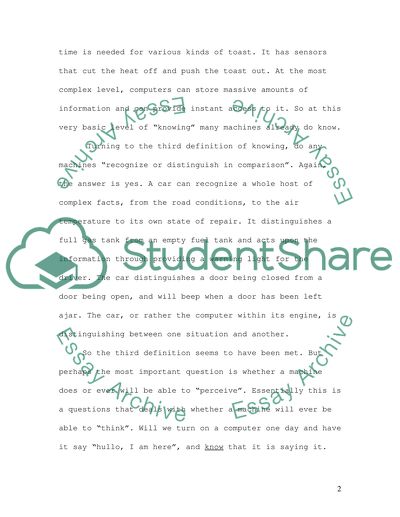Cite this document
(“Can a machine know Essay Example | Topics and Well Written Essays - 1500 words”, n.d.)
Retrieved from https://studentshare.org/technology/1508116-can-a-machine-know
Retrieved from https://studentshare.org/technology/1508116-can-a-machine-know
(Can a Machine Know Essay Example | Topics and Well Written Essays - 1500 Words)
https://studentshare.org/technology/1508116-can-a-machine-know.
https://studentshare.org/technology/1508116-can-a-machine-know.
“Can a Machine Know Essay Example | Topics and Well Written Essays - 1500 Words”, n.d. https://studentshare.org/technology/1508116-can-a-machine-know.


